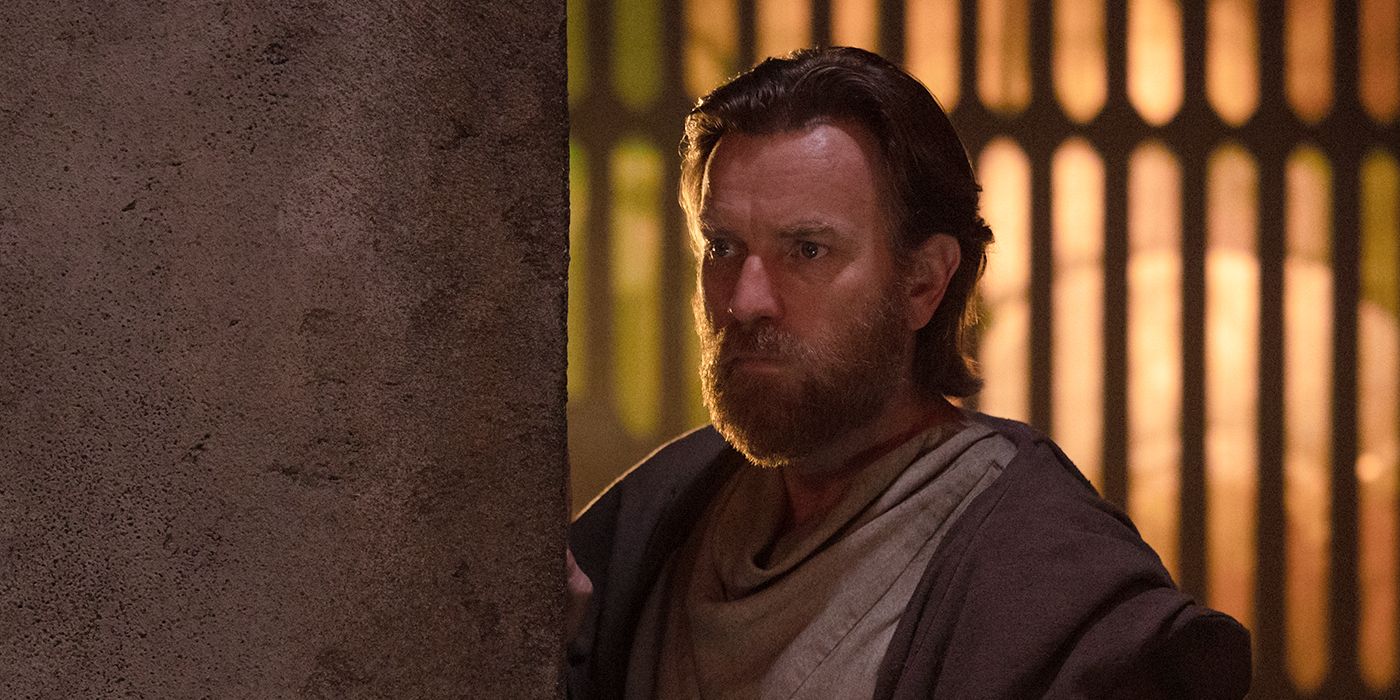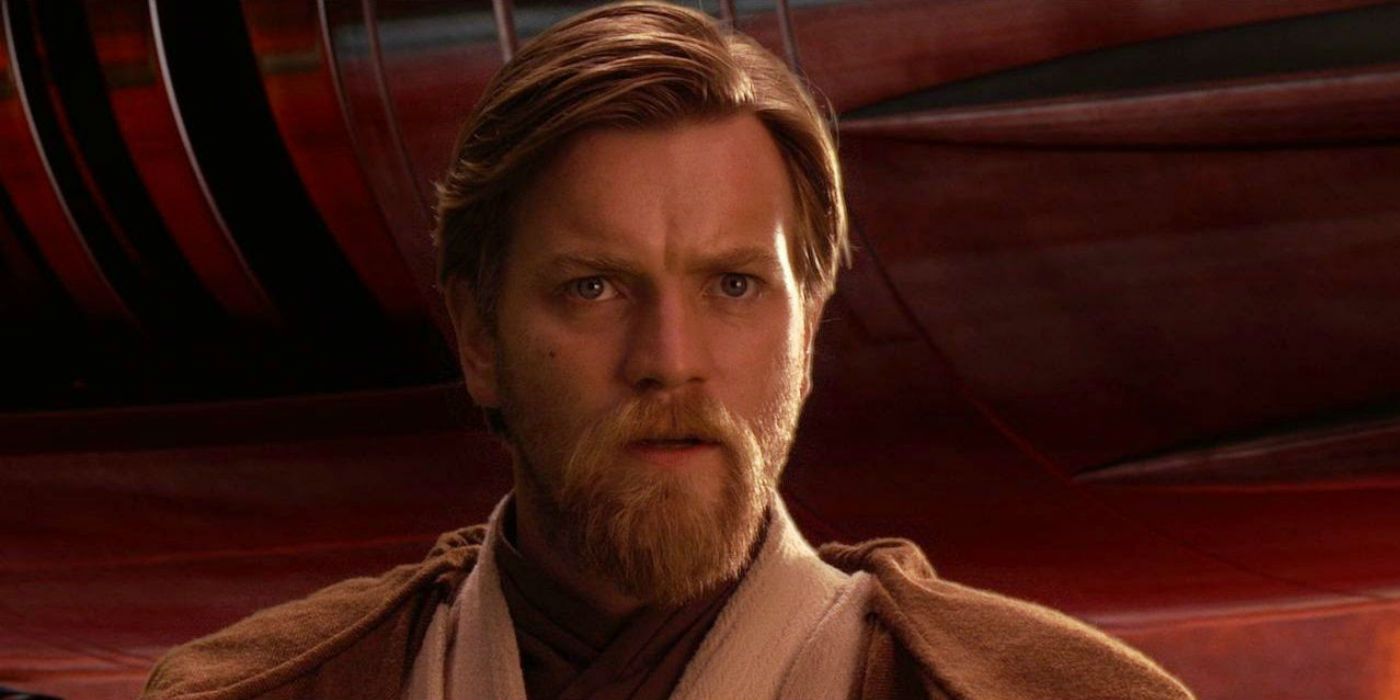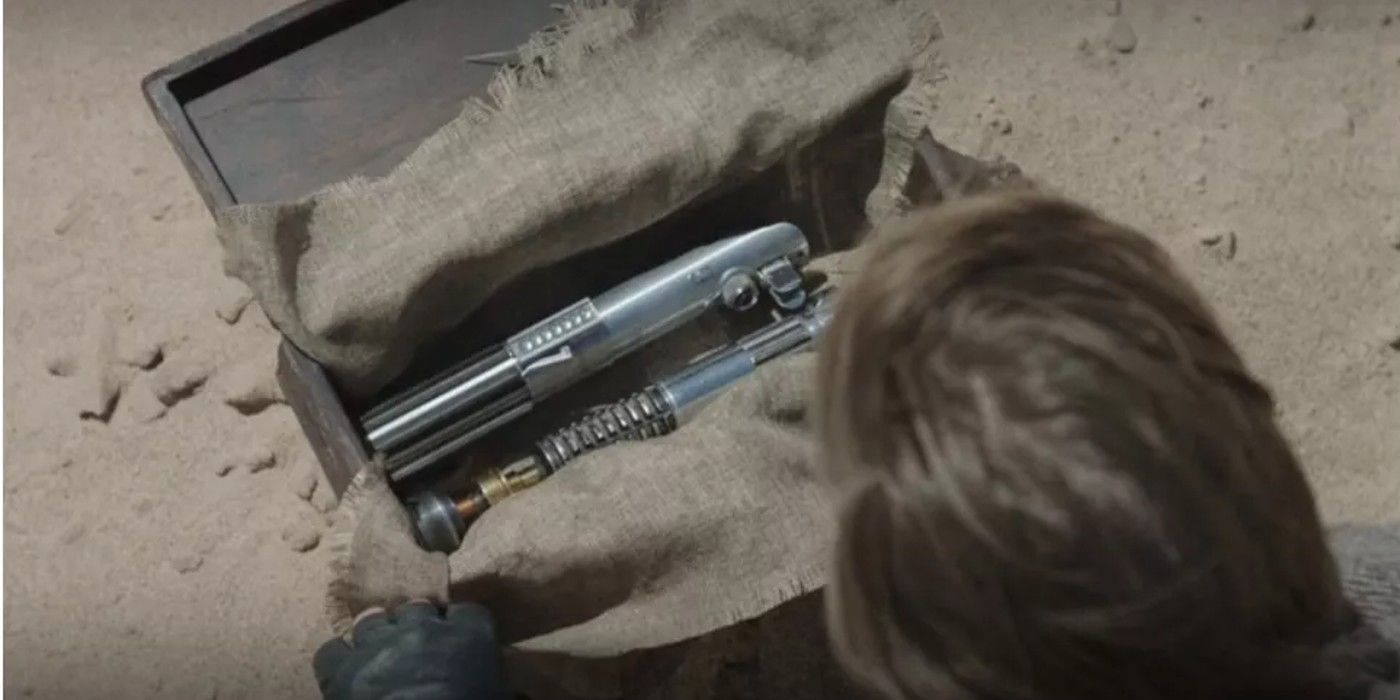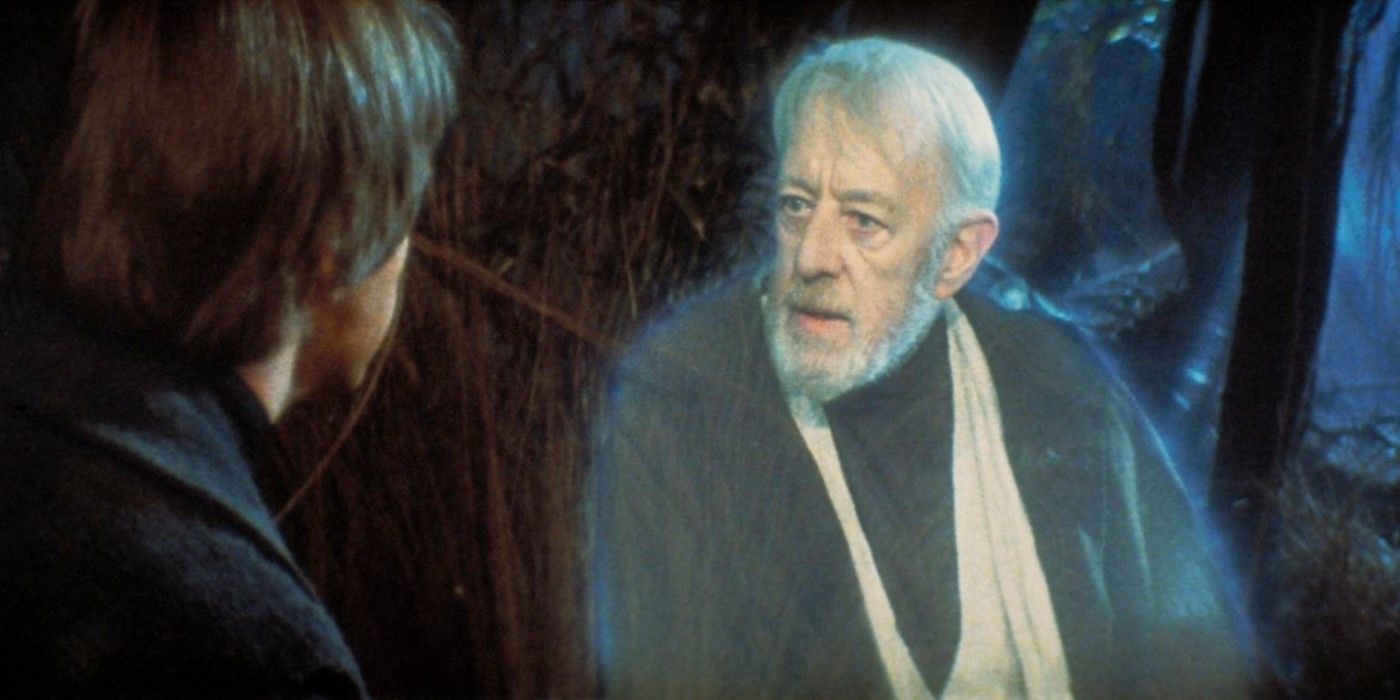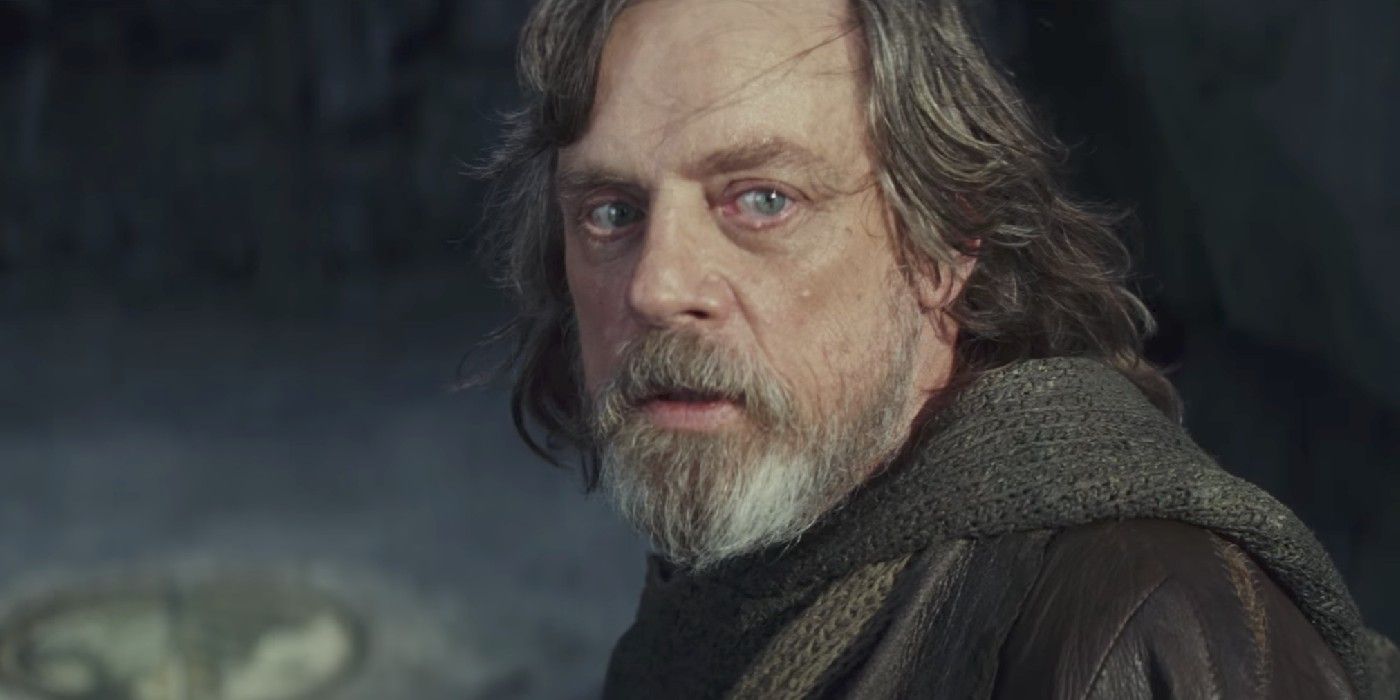This post contains very light spoilers for ‘Part I’ and ‘Part II’ of Obi-Wan Kenobi on Disney+.
The key element in all successful Star Wars stories is the notion of hope. No matter how dark things get, there is always a hint of light to guide the way. This doesn’t mean that our heroes don’t have low moments, though. In Obi-Wan Kenobi, Ewan McGregor’s Jedi master has lost his faith, much like his pupil Luke Skywalker would do 40 years later in The Last Jedi.
The Star Wars prequel trilogy era is a rich mine for expanded universe stories. In fact, The Clone Wars was the only stories along with the films considered canon by Disney when they purchased Lucasfilm. First a spinoff movie and later a series, it took place between Attack of the Clones and Revenge of the Sith, enriching our understanding of these characters. Like the show, much of Obi-Wan Kenobi is a prequel trilogy love letter. Yet what actually happens in those films is incredibly traumatic.
From his cave-dwelling, nightmares, and powerful body odor, Obi-Wan Kenobi is a broken man. What he’s feeling goes beyond defeated. He has completely lost faith in everything he ever believed. Once in each episode, he calls out to his former master, Qui-Gon Jinn.
At the end of Revenge of the Sith, Yoda gives Obi-Wan training to do in order to commune with the Force Ghost of his former master. This is not just foreshadowing an eventual Liam Neeson cameo. No, Obi-Wan needs guidance because he has, essentially, forgotten how to be a Jedi. He’s lost his way.
In the Series Premiere of Obi-Wan Kenobi, the forlorn former master commits a Jedi’s greatest sin. He has lost hope. What’s beautiful about this is that it echoes the isolation Luke Sykwalker imposed on himself in The Last Jedi. It seems that nothing breaks a Jedi master’s will more than the rise of a fascistic authoritarian power. Yet, while Obi-Wan Kenobi felt that he failed the Jedi, Luke Skywalker felt the Jedi Order as a concept was a failure.
Unlike Obi-Wan in the Original Trilogy, Luke knows that the Jedi Order created the circumstances that allowed Palpatine to take power. Luke believed the Jedi should not come back. Yet Obi-Wan believes the only person who could bring them back is Luke Skywalker. Some may see this as an indictment of The Last Jedi, but this actually honors it.
Both Luke and Obi-Wan are unbalanced in the Force, allowing their own doubt and fear to cloud their judgment. Even though the speech from the Inquisitors revealed in the trailers how a Jedi’s compassion is their weakness fits into this. Fans now understand why Obi-Wan was so good at hiding on Tattooine. Other than protecting Luke, he was not out there helping people. He used his mission to guard the boy as a shield to deal with his own sense of guilt at hiding from the universe.
Similarly, Luke’s guilt for creating Kylo Ren drove him to Ach-To, where he claimed to want to destroy the Sacred Jedi Texts. In fact, that moment from The Last Jedi may play into a later scene in Obi-Wan Kenobi.
Luke finally approaches the tree containing the Jedi texts on Ach-To with his space-lighter in his hand. Yet, because he truly doesn’t believe that the Jedi should be erased, he hesitates. Then he gets what Obi-Wan so desperately wanted. Luke gets to commune with his old master, who has a different perspective on things from his side of being one with the Force. Just as Yoda does for Luke, Qui Gon will likely speak to Obi-Wan when he needs to hear his old master’s voice most.
Of course, Obi-Wan is destined to miss the larger lesson -- the one that Luke learns in Return of the Jedi. Obi-Wan needs to hear that Anakin can be saved, yet what he’ll not be able to accept is that he won’t be the one to do it.
Remember, in Return of the Jedi, Obi-Wan was adamant that Luke destroy Vader. Luke suggesting that there is still good in his father leads Obi-Wan to declare, “Then the Emperor has already won.” This is the ultimate lesson of the prequel era stories: that a fall to the dark side is not necessarily a permanent thing.
To borrow Ms. Marvel’s ‘Spider-Man mantra.’ Good is not a thing you are, it’s a thing you do. At some point between Padmé telling Obi-Wan there is still good in Vader and him hearing those same words from her son, he stopped believing it. Yet, there is still room for Obi-Wan to find some balance in this show.
Currently, Obi-Wan is living not just with guilt and regret, but he lives in fear. We all know what fear leads to, and that is how Obi-Wan’s exile mirrors Luke’s in The Last Jedi. It’s not about whatever mission either of them claim to be completing, it’s about hiding.
It’s no accident that Rey runs there when she too fears what she will become in Rise of Skywalker. As George Lucas famously said, “it’s like poetry…they rhyme.” Even when the greatest heroes in the galaxy face a deeply personal defeat, they turn tail and run. And, in almost every case, it’s Leia Organa who get them back into the game.
For some Star Wars fans, the experience seems to be more about picking apart each new story looking for holes and things to be disappointed about. In the first episodes of Obi-Wan Kenobi some fans may react like folks did to The Last Jedi. They don’t like the idea of their favorite Jedi being despondent, depressed, or defeated. Only this is what makes them human. The triumph of Luke’s victory on Crait or Rey’s defeat of the Sith needs these low moments in order to truly ascend to the heights the storytellers want.
You can see how Obi-Wan Kenobi finds his faith again when Disney+ debuts new episodes Wednesdays.

